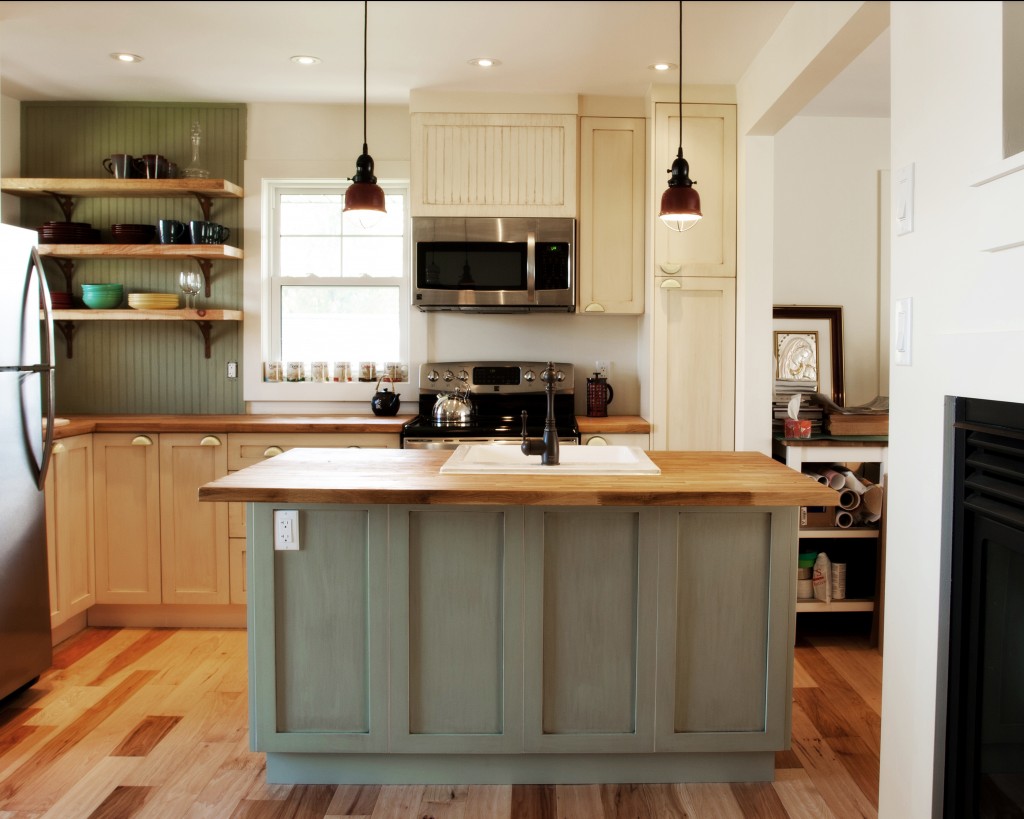How To Prepare For Your Upcoming Renovation

How to Prepare for Your Upcoming Renovation
With the weather warming up, renovation season is also heating up across Ontario. Since many of our readers are getting ready for spring and summer home remodelling and construction projects, our team at Inspire Homes has compiled a list of our top renovation preparation tips to help ensure the smoothest process and most positive outcome.
Inform your neighbours
Before your home becomes a construction site, take the initiative to notify your neighbours about the impending work to be completed on your property. This is a great opportunity to highlight which crews will be on-site, what the project entails, how long it will take and what safety precautions are being put into place. You may also want to advise them when parking, noise or other disruptions, like deliveries, may occur, so they can plan accordingly.
Notify your insurance company
It is recommended that you call your insurance broker prior to starting construction to inquire whether or not you require additional coverage during your renovation and to verify if your policy will be impacted by the work. If you fail to notify your insurer about your project and make a claim during the renovation, you may not be covered.
Designate a restroom for the workers
A restroom should be designated for your crew to use. If you opt to use a bathroom in your home, it’s best to select one near their work zone to limit the disruption to other areas of your house. If you prefer, you can also request that a portable toilet be arranged for the duration of your project.
Establish traffic areas and parking zones
Your renovation will see increased vehicle and foot traffic in your neighbourhood and around your property. As such, it is recommended that you establish traffic areas and parking zones for your crew to ensure everyone’s safety, to minimize disruption for your neighbours and to limit damage to your property. You should also determine the placement of dumpster bins, portable toilets and material storage for deliveries.
Ensure access to areas of your home
Depending on your renovation project, your contractor and crew will need access to various parts of your home, such as the electrical box, utility room, attic and other areas that house your mechanics. Before your project begins, clear any clutter or obstacles surrounding these areas and store excess belongings that might limit access or compromise safety.
Pack away and store your possessions
Renovations come with a degree of mess and, despite our best efforts, dust can spread throughout the house. One of the best ways to minimize renovation dust is by covering or closing off the vents in your home and changing your furnace filters often. It’s also advised to pack up your belongings in sealed boxes and store them for the duration of your project. This includes clothing in your closets, which can be bagged up, as well as any valuables, paperwork or sentimental items.
Cover or store your furniture
Similarly, you’ll want to protect your furniture and electronics from being damaged by dust or renovation debris. You can opt to cover these items or arrange off-site storage, depending on the scope of your project.
Remove items hung on your walls
Neighbouring rooms will be impacted by vibration as your renovation is carried out in your home. To protect your art, mirrors and pictures, remove these items from your walls and store them to avoid breakage.
Consider relocating during a larger renovation
A large renovation or a second-storey addition will make your home temporarily unliveable. As a result, many homeowners choose to relocate their children and/or pets to a rental property or move in with family to minimize interruptions during construction. Not residing in the home may also translate into efficiencies for your contractor and crews, which can help speed your project along. This blog post explains more.
Prepare as best as you can if you do stay in the home
Certain projects, like a smaller renovation or a contained back or side addition, can allow families to stay in the home during the project. If you are not relocating, create a safe zone for children and pets away from construction. Depending on what areas of the home are being remodelled, you may also need to create temporary kitchen, laundry, sleeping or bathroom arrangements to go about daily life.
Final thoughts
A home renovation can be stressful, loud and messy, but a positive attitude, good communication and realistic expectations can go a long way. By preparing for your renovation in advance and taking necessary precautions, you’ll be better equipped to handle the many decisions a homeowner faces, and maybe even have some fun along the way.
